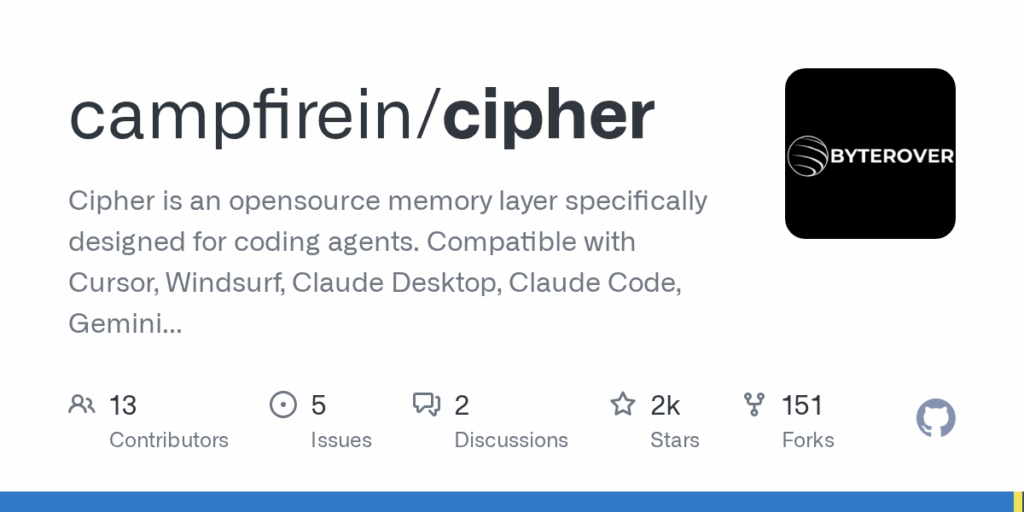cipher
Basic Information
Cipher is an open source memory layer designed specifically for coding agents and developer IDE workflows. It provides a persistent, shared memory service that integrates with MCP-compatible clients and IDEs so coding assistants retain context across sessions and tools. The project targets integration with Cursor, Windsurf, Claude Desktop, Claude Code, Gemini CLI, AWS Kiro, VS Code, Roo Code and other MCP clients. Cipher can run as a CLI tool, an MCP server, an API server or a web UI, and is distributed via npm, Docker and source builds. Configuration is driven by a main YAML file and environment variables, and the project documents LLM provider configuration, embedding and vector store options, chat history backends, workspace memory and MCP integration. The README emphasizes use by developer teams and coding agents to capture and share code-related knowledge and reasoning.








